From Lack of estrogen mainly affects women. The estrogen deficiency can occur due to illness, but it often accompanies maturation processes.
What is Estrogen Deficiency?
A Lack of estrogen is when the organism of an affected person has a reduced amount of endogenous estrogens. Estrogens are a form of female sex hormones.
As a rule, the estrogen deficiency therefore occurs almost exclusively in women. In most cases, an estrogen deficiency in those affected is accompanied by a parallel deficiency of other hormones; for example, the estrogen deficiency is often accompanied by an existing progestin deficiency.
Progestogens, like estrogens, are female sex hormones. Symptoms caused by an estrogen deficiency differ mainly depending on the stage of maturity of an affected woman: In sexually mature sufferers, corresponding complaints are expressed, for example, in the absence of menstrual periods or intermenstrual bleeding.
Depending on the severity, an estrogen deficiency can also lead to infertility. During menopause, a lack of estrogen can lead to hot flashes, sleep disorders and / or depressive moods.
causes
In menopausal women is a Lack of estrogen mostly the result of natural processes: In the course of the menopause (menopause), the ovaries increasingly cease to function. As a result, the body's own production of estrogens also decreases, so that those affected develop an estrogen deficiency.
Other possible factors can also cause an estrogen deficiency in women during sexual maturity: A corresponding deficiency in estrogens can be caused, for example, by incorrect development and / or restricted functions of the ovaries.
In addition, surgical removal of the ovaries can also lead to a lack of estrogen in an affected woman. Such a surgical intervention as a rare cause of estrogen deficiency can be necessary due to cancer, for example.
Symptoms, ailments & signs
An estrogen deficiency can be accompanied by numerous side effects. The symptoms that cause the disorder also depend on the extent of the deficiency and the age at which it occurs. An estrogen deficiency in teenage girls can delay or even stop sexual development during puberty.
In untreated or severe cases, this can lead to infertility. In adult women, a lack of estrogen often causes an irregular cycle or a complete absence of menstruation. In addition, the cervical mucus thickens and becomes impermeable to male sperm.
Estrogen deficiency is therefore a common reason for unwanted childlessness in women. The disorder can also lead to increased blood lipid levels, skin and hair problems, particularly hair loss and acne, and premature wrinkling of the skin. Furthermore, estrogen deficiency-related changes in the sexual organs and the urinary tract can occur, which are accompanied by a constant urge to urinate and recurrent, often chronic, infections of the urinary tract and vagina.
In severe cases, cardiac arrhythmias can even occur. During menopause, almost all women experience a lack of estrogen. The typical menopausal symptoms such as hot flashes, depressive moods and sleep disorders are due to the reduced production of this sex hormone. If the hormone deficiency is left untreated, it can lead to osteoporosis, especially in combination with an improper diet and lack of exercise.
Diagnosis & course
The diagnosis Lack of estrogen A detailed patient discussion is usually used first. In the course of such a conversation, a patient provides the attending doctor with information about individual complaints and medical history, for example. The next step is often a gynecological (gynecological) examination.
With the help of such an examination, impairment of the fallopian tubes in the presence of an estrogen deficiency can be determined or excluded. If necessary, a hormone analysis can finally provide information about the current hormone status of a patient.
The individual course of an estrogen deficiency depends, among other things, on the respective cause of the hormone deficiency and any therapeutic measures that may take place.
If an estrogen deficiency is caused by impairment of the ovaries, successful therapeutic measures can contribute to an increase in estrogen. An estrogen deficiency and associated symptoms during menopause can also be positively influenced by medical measures. Various symptoms of an estrogen deficiency typical of menopause subside independently after this phase of life is over.
Complications
A lack of estrogen can cause a variety of complaints, which can lead to serious complications if there is no or inadequate treatment. First of all, a deficiency in female sex hormones promotes acute symptoms such as sleep disorders or menstrual cramps, which impair well-being and promote the development of mental illness. In the further course it can lead to depressive moods, increased blood lipid values and various diseases of the cardiovascular system.
The most serious complications include arrhythmias, osteoporosis, and hair loss. In addition, an estrogen deficiency changes the nature of the cervical mucus - the substance becomes thicker and makes fertilization considerably more difficult. In extreme cases, it can lead to infertility. There is also an increased risk of vaginal and urinary tract infections, incontinence and vaginal dryness.
Treating estrogen deficiency can also cause complications, for example due to the drugs being prescribed or poorly coordinated hormone replacement therapy. Long-term therapy (more than five years) also increased the risk of developing breast cancer. Finally, home remedies or preparations from homeopathy can also cause complaints. Since the body is already weakened due to the lack of estrogen, remedies such as monk's pepper or food supplements can quickly lead to serious complaints that require independent treatment.
When should you go to the doctor?
If a woman is planning to have children, a check-up visit to a doctor should take place to clarify her health. If, despite all efforts, a pregnancy is not possible for several months, research into the cause is advisable. Both partners should undergo medical exams to determine the cause of the infertility. If puberty is delayed, this is already a sign of an existing hormonal problem. Consultation with a doctor is recommended so that complications can be avoided in the long term. There is also a need for action in the case of disorders of the heart rhythm, hot flashes, a depressed mood or irregular sleep.
Infections in the urinary tract, an unusual need to urinate, hair loss and acne also indicate the existence of a health impairment. If the symptoms persist over a long period of time or if they intensify, it is necessary to consult a doctor. Abnormal libido or changes in sex drive should be discussed with a doctor. In many cases, they indicate irregularities in the hormonal balance. Characteristics of behavior, loss of zest for life or visual changes in the area of the genital organs are further signs of a disease. A doctor should be consulted so that the symptoms can be alleviated. Skin problems, emotional irregularities and withdrawal from social life are all warning signs.
Treatment & Therapy
Proper treatment of Lack of estrogen is initially based on the triggering factors. If an oestrogen deficiency is due to illnesses or functional disorders in individual cases, treatment of the cause is one of the most important therapy components.
If an estrogen deficiency is to be compensated for with the help of medical measures, this is possible with the help of various forms of hormone treatment. As part of such a treatment, the organism is supplied with estrogens on a synthetic basis. If an affected person was diagnosed with a progestogen deficiency in addition to the estrogen deficiency, for example, preparations that combine both hormones are often used for hormone treatment.
The synthetic hormones for hormone treatment can be supplied to the organism by taking tablets, for example. In addition, the hormones can penetrate the patient's body through the skin. This is done, for example, with special patches that release hormones.
Finally, the various forms of hormone therapy for estrogen deficiency also include the use of special ointments that are to be applied to the genital area. If necessary, individual symptoms of estrogen deficiency can be treated additionally; For example, with the help of sleep-promoting active ingredients for sleep disorders.
You can find your medication here
➔ Medicines for menstrual crampsprevention
A natural one Lack of estrogen in the context of an onset of menopause cannot be prevented. On the other hand, possible symptoms associated with a natural lack of estrogen can (if medically reasonable in the individual case) be prevented by early hormone therapy. A lack of estrogen due to physical dysfunction can primarily be prevented through regular and early visits to the doctor.
You can do that yourself
Moorsitz baths can be used as supportive therapy for estrogen deficiency. These baths improve blood flow to the vagina and increase its resistance to infection. As a dietary supplement, patients can take calcium and vitamin D - the recommended daily dose should not be exceeded. Sports activities such as Nordic walking, swimming or cycling can also alleviate the symptoms based on the lack of estrogen. The often dry eyes can be counteracted with moisturizing eye drops.
Positive effects can also be observed from the administration of St. John's wort. However, it should be noted here that the effect of the contraceptive pill may be restricted by St. John's wort. Monk's pepper and black cohosh also have a positive effect on the general condition, but it is advisable to consult your doctor in advance. The same goes for the use of estrogen-containing creams or suppositories to treat the common vaginal dryness.
The use of intimate lotions and intimate sprays, on the other hand, is not recommended, as these destroy the vaginal flora in the long term. We also recommend wearing cotton underwear, which can be washed at 90 ° Celsius. Pathogens are only killed off with such hot laundry.

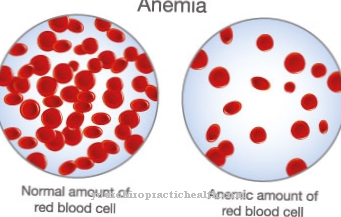
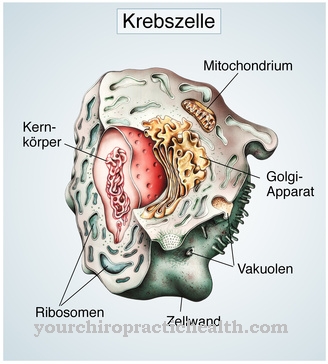
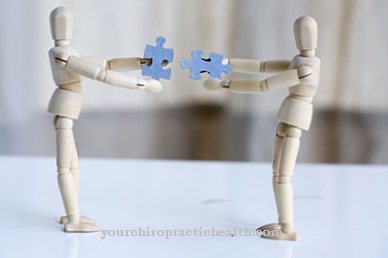
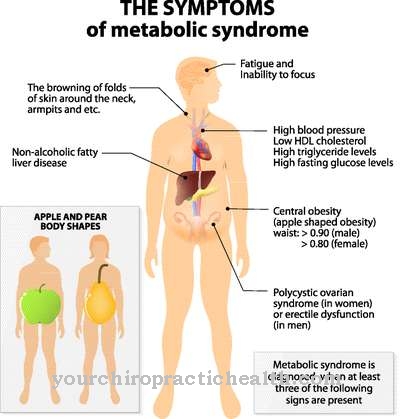

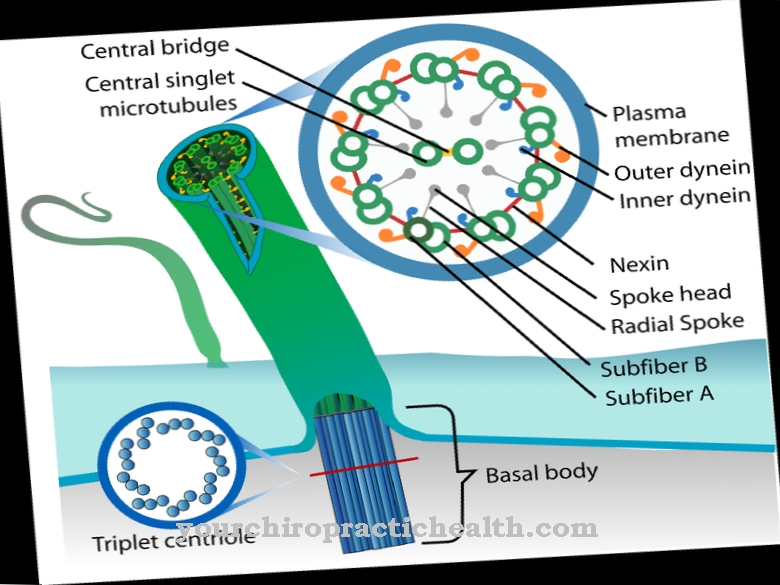





.jpg)



.jpg)










.jpg)
